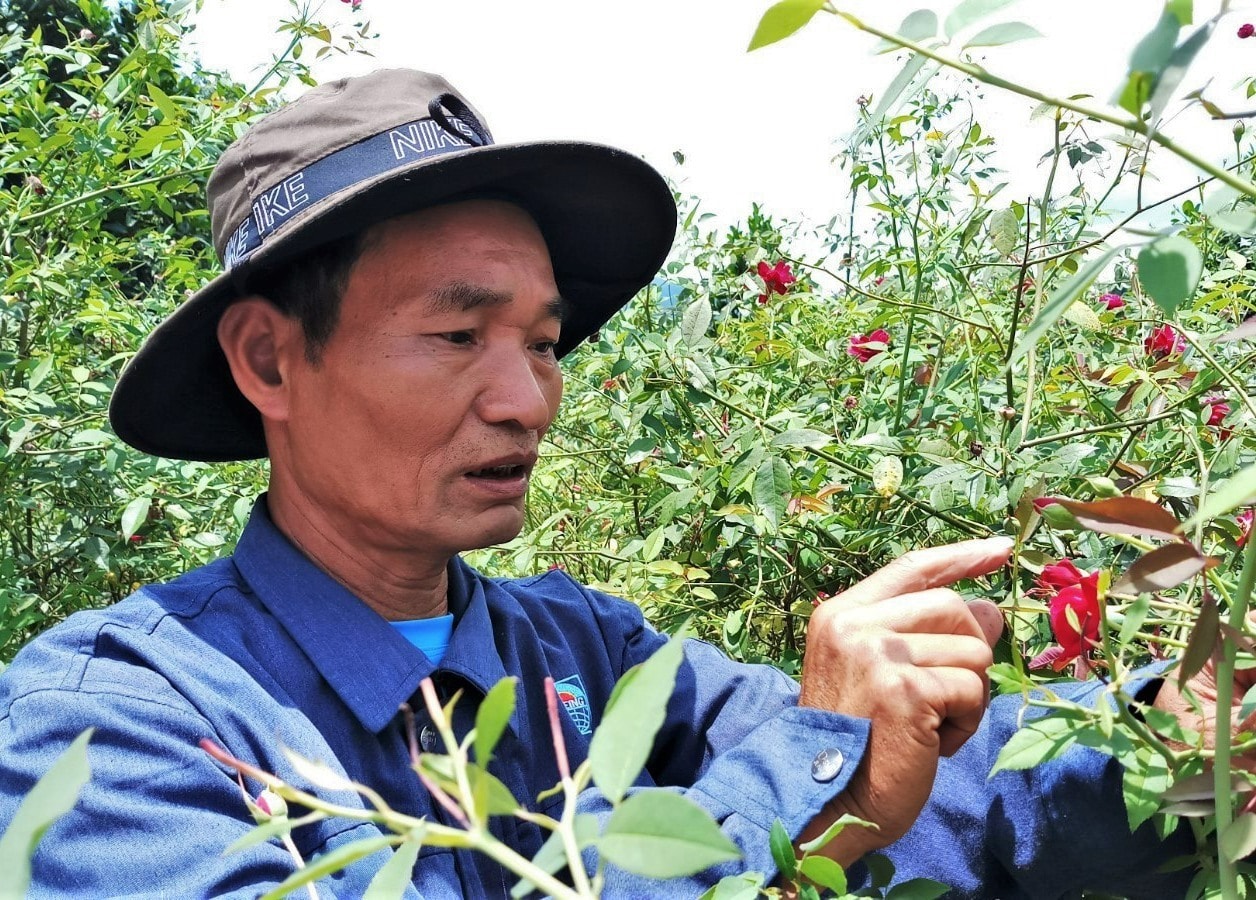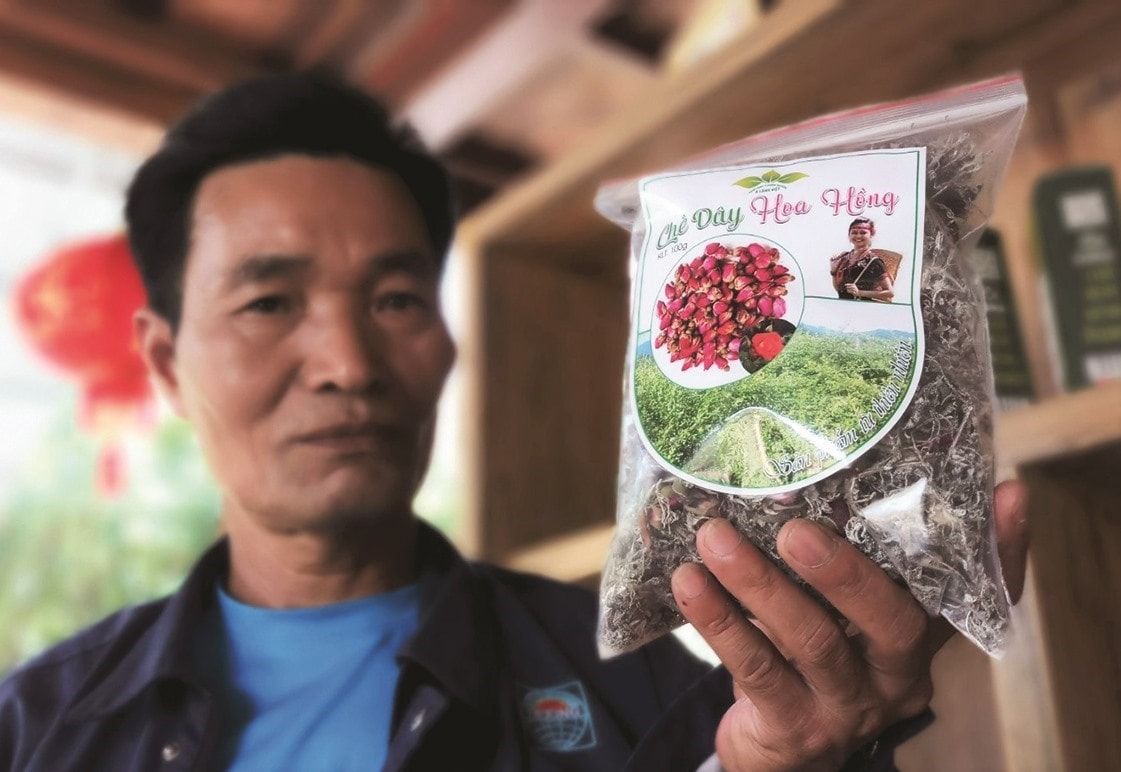Medicinal herbs in Panan
(QNO) - Medicinal herbs are processed by Mr. Pham Quoc Phong to become different types of tea under a trade name of Panan.

Mr. Pham Quoc Phong is living in the mountainous area of Panan (Tu commune, Dong Giang district, Quang Nam province). He is a typical start-up farmer with different unique natural products.
Mr. Phong’s first product was Ampelosis cantoniensis tea to go into the market in 2016.
Then, he helped the locals plant medicinal herbs under forest canopies. One of the medicinal herbs is inherently a wild plant species, razéh vine tea.
Rose in a mountainous area
Mr. Phong’s garden has over 2,000 blooming ancient roses originating from Hue. Besides enjoying flowers, he uses the buds of rose to make tea.
In 2020, his Panan rose tea was rated as a provincial 3-star OCOP product and became well-known as a typical Co Tu ethnic product in Panan.
All the process of tea production is done carefully, meeting quality standards and using completely natural materials.
From medicinal herb gardens to ecotourism model
Rose tea is good for health, anti-aging and especially popular with women. It is good for digestive system, making skin more beautiful, helping weight loss, soothing sore throat, treating colds and flu, limiting arthritis and cancer risks.
Besides, Mr. Phong is studying to produce a kind of tea in a combination of zaréh tea and rose.
Currently, dozens of hectares of hills in Tu commune is covered with razéh tea and ancient roses, which is suitable for tourism development.
Some households have allowed visitors to enjoy the beauty of their razéh tea and ancient roses gardens in combination with presenting their medicinal herb products.
It is planned by local authorities to enlarge the area of razéh tea and ancient roses, build and upgrade infrastructure in order to improve the locals’ living conditions and help ecotourism develop.

'Eradication of poverty' trees
Razéh tea and rose are considered as the trees that help lift Co Tu ethnic people in Panan out of poverty.
Besides providing materials for tea production, the gardens of zaréh tea and ancient roses have become tourist attractions in this mountainous area, which helps improve the locals’ income and end poverty sustainably.
Mr. Phong is planning to diversify his products. At the same time, he will establish a centre for healthcare based on natural medicinal herbs.
